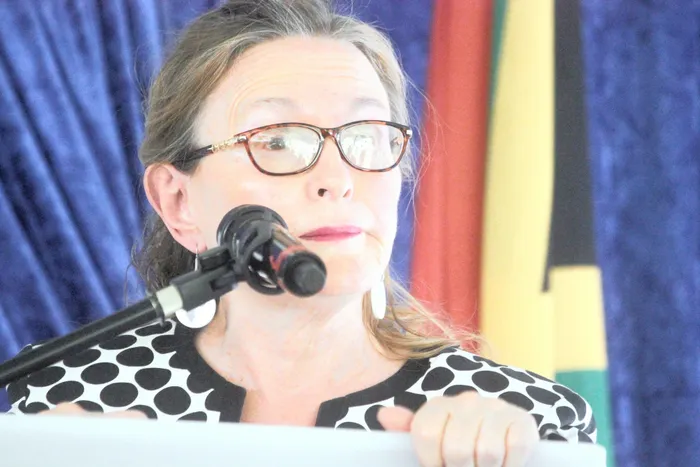#WaterCrisis: ANC wants Zille grilled on her role in woes

Premier Helen Zille File photo: INLSA Premier Helen Zille File photo: INLSA
The ANC in the Western Cape wants an urgent legislature
sitting to discuss the manner in which Premier Helen Zille is handling the City’s water woes and whether she should not leave her office.
Yesterday, acting provincial chairperson Khaya Magaxa blamed Zille for the water crisis in the province, saying she was the root cause of the problem.
“She might just be called to task to deal with the matters she brushed aside when she was the mayor of Cape Town.
“The ANC will take up the matter in the provincial legislature to drill down to the core of this matter,” he added.
Magaxa said under Zille’s administration the DA had failed to properly and prudently invest in a potable water supply infrastructure and manage water better.
Former health MEC Theuns Botha has criticised the manner in which the water crisis is being handled. He said it revealed a crisis in the governance of Cape Town.
He charged that the appointment of Cape Town’s deputy mayor, Ian Neilson, on the water team would prove to be a disaster in the end.
Meanwhile, Water and Sanitation Minister Nomvula Mokonyane said Cape Town could defeat Day Zero by changing its behaviour towards water usage.
“Day Zero can be avoided if all of us can be positive, move beyond politics, and if all of us appreciate that the realities of climate change are upon us and that it is not through throwing in money that the solution will be found.
“We need every idea and every innovation,” she said.
Mokonyane was speaking at the Cape Town Press Club on the national government’s plans to avoid #DayZero - the day when taps will run dry and residents will be expected to collect water from designated pick-up points.
The DA-led government has criticised national government over what it refers to as a lack of urgency on the part of national government to assist the City with its water woes.
DA leader Mmusi Maimane announced that he would ensure that the City defeats Day Zero.
He also charged that the responsibility for bulk water supply lay with the national government.
It is predicted that the city will hit Day Zero on April 12.
However, Mokonyane said the national government would implement urgent augmentation activities to provide additional water, which include desalination, groundwater optimisation, water conservation and demand management, and reuse optimisation.
Mokonyane said these measures would need help from society, by changing their behaviour towards water use.
“We need to ensure that even here in the City of Cape Town water users must be provided with more information on how to save water, especially at household level, given that 70% of water is being used by domestic consumers,” she said.